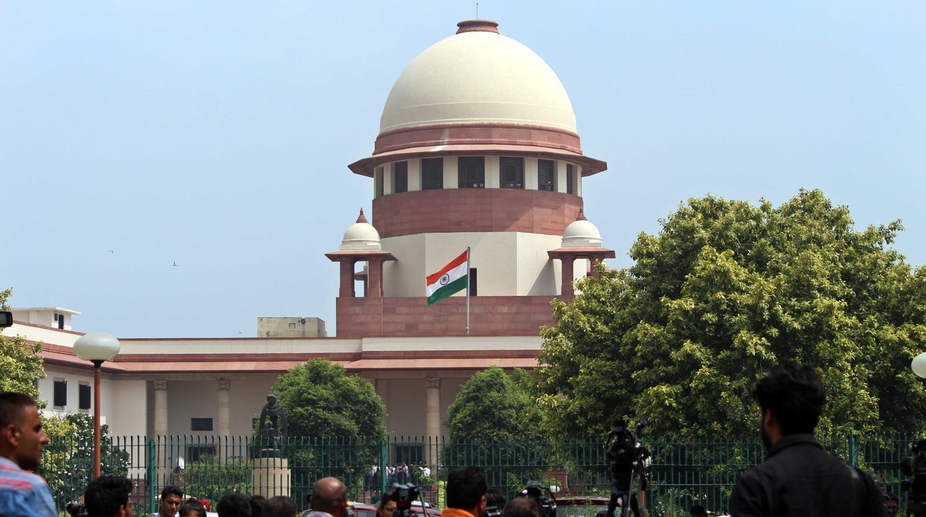Ahead of EVM-VVPAT verification case order, SC calls ECI officer to explain queries
The bench of Justices Sanjiv Khana and Dipankar Datta had last week reserved its verdict on a batch of public interest litigations in the matter.

Supreme Court of India (Photo: IANS/File)
Not particularly poetic, but effective enough for the Delhi High Court to drive the point home that ~ in some contrast to the clichéd “justice delayed is justice denied” – there must be no rushing through the judicial process. A valid point in an era when popular sentiment tends to favour “instant” justice ~ at times only to assuage agitated emotions.
A bench of Justices S Murlidhar and IS Mehta really slammed a trial court’s “superfast track procedure” in a criminal case, convicting and sentencing two men to “life” for kidnapping, attempting “unnatural sex”, and murder. “Justice hurried is justice buried”, the Bench asserted, after ridiculing the trial court’s examining no fewer than 22 witnesses in a single day, and describing the matter as “serious miscarriage of justice.” Giving the two persons held guilty by the lower court the benefit of the doubt, the High Court acquitted them.
Does the matter end there the lay man would be entitled to ask; what if the duo had lacked the resources to move the High Court? That query assumes stark significance in the context of the High Court’s observation that it was “unable to understand why the trial judge considered it necessary to rush through the prosecution evidence in a case of this nature, and how she failed to realise it would result in a grave miscarriage of justice… suspicion however strong cannot substitute proof”.
Advertisement
What must disturb all with a respect for the law was the High Court noting that this was yet another case of the particular additional sessions judge, in her “enthusiasm” to speed up the trial process, having examined a “disproportionately large” number of prosecution witnesses on a single day. Sadly, and perhaps for valid technical reasons, theHigh Court did not indicate any punitive or remedial action. Is the “offending” ASJ still entitled to try criminal cases? Will others fall victim to her impatience?
Jud
icial reform is generally spoken about in the context of the upper tiers of the hierarchy when it is at the lower end of the pyramid that faults lie, faults which tend to hit the poor hardest. There is little point in the collegium and the government scrapping over appointments in the High Court and Supreme Court when, in terms of numbers at least, there is a crying need for improving the quality of the lower courts. Judges of the Delhi High Court recently conducted welcome checks at the various District Court complexes in the Capital.
But the fact that quite a few judges had not turned up on time was only a comparatively minor transgression. The lower courts ~ across the country ~ are in a mess, and that is where both “justice delayed is justice denied” and “justice hurried is justice buried” find real time manifestation. Neither the law minister nor the CJI appear overly perturbed. The interests of people are so easily jettisoned.
Advertisement